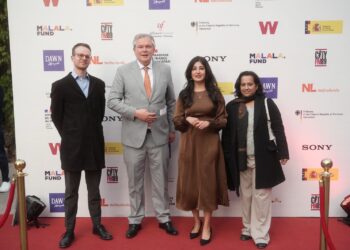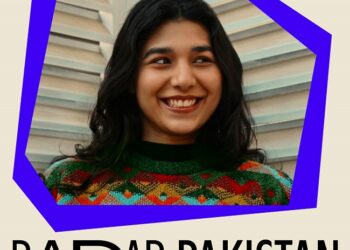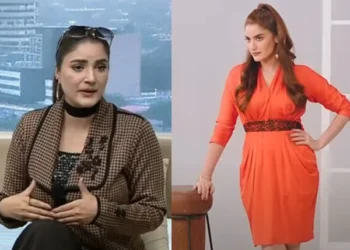Pakistani actress Hania Aamir has publicly and boldly rejected false statements attributed to her by Indian media outlets, calling out the deliberate spread of misinformation aimed at maligning her reputation and stirring unnecessary controversy.
Introduction: Hania Aamir Speaks Out
In a digital age where social media rapidly amplifies both truth and falsehood, celebrities often find themselves at the center of baseless rumors. One such recent incident involves Pakistani actress Hania Aamir, who became the target of fabricated statements circulated by certain Indian media outlets. Known for her charm, acting prowess, and massive fan following on both sides of the border, Hania Aamir found herself embroiled in an unwanted media storm.
On April 30, Hania Aamir issued a strong and clear statement denying any controversial comments falsely attributed to her by Indian news platforms. She emphasized that the remarks making rounds on social media and being reported by Indian outlets were completely baseless and fabricated.
Background: What Triggered the Controversy?
The controversy erupted after multiple Indian media channels and online pages began circulating statements claiming to be from Hania Aamir. These statements allegedly involved political and social commentary aimed at Indian society, particularly in the context of heightened tensions in the region. However, Hania has firmly denied ever making such remarks.
The false news appeared to be part of a smear campaign, attempting to portray the actress as someone holding anti-India sentiments. For the past two days, social media platforms—especially Twitter and Instagram—saw a surge in posts targeting Hania Aamir, using quotes she never said. Many of these posts carried nationalist overtones, accusing her of spreading “anti-India propaganda,” even though no credible source or video evidence supported these claims.
Hania Aamir’s Response: A Message of Peace and Responsibility
Taking to her verified social media account, Hania Aamir addressed the issue directly. In a composed and dignified manner, she refuted the claims and appealed for peace and mutual respect between audiences across borders.
“Any sentence or opinion attributed to me by the Indian media has no relation to reality,” Hania stated in her Instagram story. “I would never say anything that promotes hatred or fuels misunderstanding among people.”
She further added that in sensitive times like these, it is more important than ever to exercise caution and compassion. Hania urged her followers and the broader public to refrain from spreading unverified information that could contribute to communal discord or incite negative sentiments.
Promoting Positivity Amidst Rising Tensions
Hania’s statement was not just a denial—it was also a call for unity, understanding, and peace in an increasingly polarized environment. She emphasized the importance of showing kindness, empathy, and responsibility, especially in times of crisis or political sensitivity.
“In such circumstances, we must avoid sensationalism and instead work towards building bridges, not walls,” she remarked.
Her stance won praise from fans and celebrities across Pakistan, and even from many Indians who recognized the disinformation tactics often used by hyper-nationalist elements in the media.
The Dangers of Misinformation in Celebrity Culture
The incident has once again spotlighted the challenges public figures face in the digital era, particularly in South Asia, where media rivalries and political narratives often overlap. Misinformation, especially when spread by seemingly credible sources, can escalate quickly and create misunderstandings among large populations.
In Hania’s case, the viral spread of false claims not only put her reputation at risk but also exposed her to online harassment and verbal attacks. Many social media users from India, misled by the fake posts, began criticizing and even abusing the actress.
Media experts warn that such episodes underline the urgent need for ethical journalism and fact-checking before publishing or sharing any news. A few even pointed out that this tactic has been used before—where fake posts or doctored interviews of Pakistani celebrities were used to stir public anger.
Hania Aamir: A Beloved Icon with a Cross-Border Fanbase
Hania Aamir is one of the most followed Pakistani celebrities on social media. With over 9 million Instagram followers, her influence extends beyond Pakistan’s borders into India, Bangladesh, and the global South Asian diaspora. Her roles in dramas like Ishqiya, Mere Humsafar, and Sang-e-Mah have made her a household name.
The actress has often expressed her appreciation for Indian fans and has never shied away from engaging in cross-cultural dialogues, making the recent controversy all the more unfortunate and ironic.
Despite ongoing political differences between India and Pakistan, entertainment and cultural exchanges have always held the potential to bridge divides. Hania’s body of work and fan interactions reflect this possibility—until such misinformation attempts threaten to disrupt it.
The Indian Media’s Track Record with Pakistani Celebrities
This is not the first time the Indian media has faced criticism for misreporting or sensationalizing news involving Pakistani public figures. In the past, artists like Mahira Khan, Atif Aslam, and even Nobel laureate Malala Yousafzai have been misrepresented or targeted with fake news, often to push nationalist narratives or create controversy.
Such acts not only harm individuals but also derail any ongoing efforts toward regional peace and cultural cooperation. This latest attack on Hania Aamir seems to follow a similar pattern—using a high-profile celebrity as a pawn in the broader game of political posturing.
Celebrities Urge for Caution and Verified Reporting
In solidarity with Hania, several Pakistani actors and influencers came forward to support her message. Some even called out Indian media houses for irresponsible reporting and urged global media platforms to adopt stricter verification protocols before publishing quotes.
Prominent actress and friend Yumna Zaidi commented: “We stand with Hania. Truth always prevails. Journalistic ethics should never be compromised just to fuel TRPs.”
Pakistani netizens also trended hashtags like #StandWithHania and #FakeNewsAlert, demanding accountability from the platforms that shared the false information.
Hania’s Final Word: Truth Will Prevail
Ending her statement on a hopeful note, Hania Aamir expressed confidence in the power of truth and thanked her fans for their unwavering support. She reiterated that she has always worked for peace, positivity, and connection—not division.
“Let us choose love over hate. Let us not allow falsehoods to come between us. I love all my fans, no matter where they come from.”
Conclusion: A Call for Media Responsibility and Public Awareness
The recent controversy surrounding Hania Aamir is a cautionary tale about how fake news, unchecked rumors, and politically motivated media narratives can create unnecessary conflict and damage reputations. In an age where information spreads at lightning speed, it’s vital for audiences to verify facts and resist reacting emotionally to unconfirmed reports.
As Hania Aamir courageously stood up to defend the truth, she also reminded everyone—fans, journalists, and influencers alike—that integrity, empathy, and caution should be at the heart of public discourse.

























